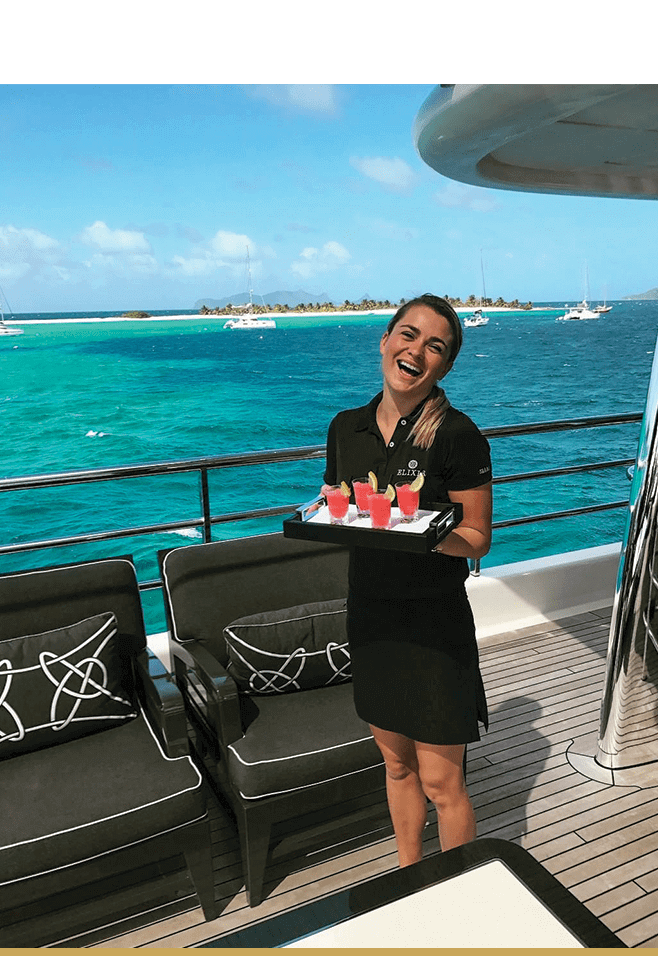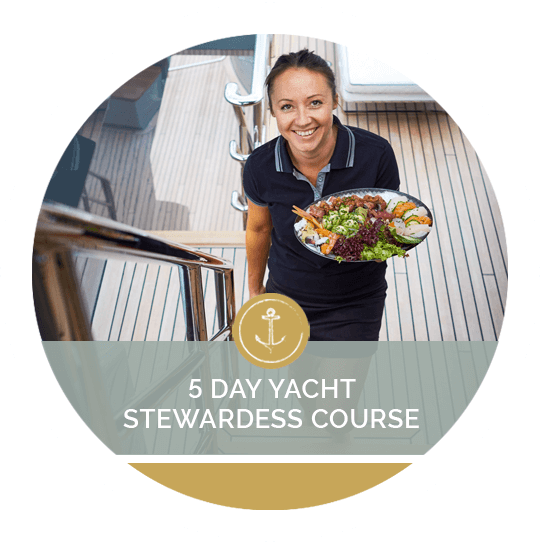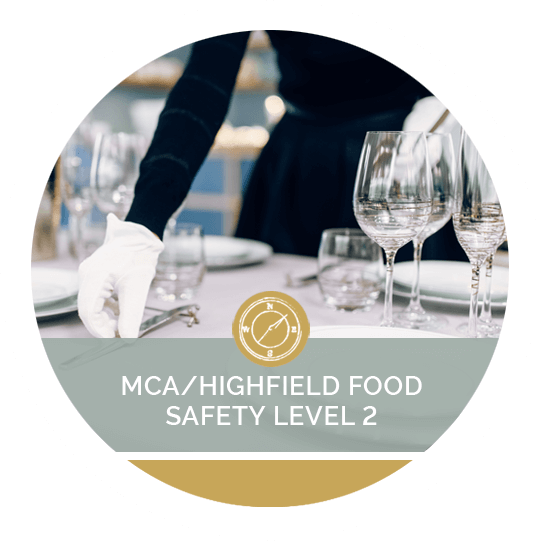COURSES

MCA/HIGHFIELD FOOD SAFETY LEVEL 2
The internationally accredited MCA/Highfield Food Safety level 2 course is a mandatory requirement for all food handlers & servers, including the Yacht Stewardess role. The food safety course aims to provide individuals with the basic knowledge of how to safely store, handle, cook and serve food onboard a superyacht in a hygienic and safe manner. As food poisoning can be extremely dangerous, it is important to be fully compliant and understand best practices and how to mitigate this risk.
Food poisoning examples include the E. coli O157:H7 outbreak in South Africa in 2008, which caused widespread panic and closure of certain meat businesses.
Why is food safety onboard a superyacht so important?
These courses are critical in maintaining healthy food protocols onboard a superyacht. It’s the captain’s or superyacht owner’s legal duty to place food security measures on the vessel. Therefore, Level 2 is the required legal certification that food authorities need to ensure safe food storage, preparation and serving standards regardless of whether you handle deliveries, food storage, preparation, production, and service of food items.
There have been cases of food poisoning on different vessels. As of recently, in 2021, as reported by the Maritime Executive, three different ships in different parts of the world suffered incidents of food poisoning. In the event of food poisoning on a superyacht, it may be hard to transfer passengers to the nearest hospital due to inclement weather or other potential risk factors. This is why food safety protocols are critical in ensuring passenger safety onboard the superyacht.
What types of food contamination hazards are there?
- Biological food hazards include the presence of viruses, fungi, and parasites that could potentially contaminate the food.
- Hazardous chemical materials such as machine oils and pesticides could also contaminate the food.
- Physical hazardous materials such as glass pieces, toothpicks, hair, and metal pieces can affect the food.
Our MCA/HIGHFIELD food safety level 2 course includes the following topics:
- Introduction to food safety
- Personal Hygiene
- Microbiological hazards
- Contamination hazards
- Food poisoning and how to control
- Working areas and equipment
- Food pests and pest control
- Cleaning and disinfection






